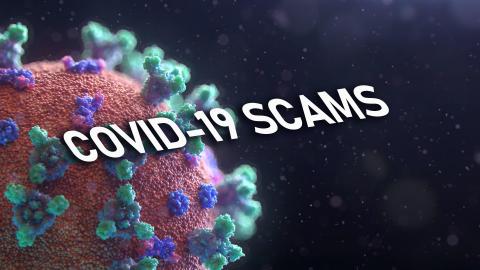COVID-19 Relief Food and Offer Scams
You are here

By Nsanzimana Gilbert
Have you seen in your inbox or in a social media group a message with an offer for free help during this pandemic? The messages use quite an appealing language and just at the end, there is a link to click for the offer. These are scams. Below is a sample of such scams, they are crafted very persuasively to give the victim but little or no time for delay.
Sadly, even when many know that the message is FAKE, they still go on to click the link, with a mentality of "just in case"
The Two Common Intentions for these Scams
1. Collect personal information from victims for further Cyber Attacks
After clicking the link, it usually opens up a survey on a hacker-controlled site in which the prospective victim is to provide personal information such as their names, email address, occupation or even marital status. Any of such information is very useful to cyber criminals. At a later stage, the email address you provided could be used to send a personalized attack that could harm your device or steal more data from you. The scammers often ask the victim to share the link to more people before receiving the offer, but this is a way of increasing their attack vector by collecting as much information as possible.
2. Install Malicious Software (Malware) on your device
The link provided, when clicked, it can pretend to be running a legitimate action but, Cyber criminals have ability to run and install a malicious software in the background without the victims’ notice. The malware could be a ransomware thereby encrypting your data on phone and later asking you for a pay before decrypting the data, it could a spyware which will operate in the background while stealing personal information such as bank accounts and their passwords (as the victim makes transactions on the internet)
What to do when you receive the message
-
Avoid clicking the link. In case the messages poses to be from a certain entity, visit their official website or contact them directly on a known contact.
-
Call the person who sent the message. Some times their social media account could be have been hijacked by hackers who then use it to send such scams to the victim’s contacts.
-
Delete the messages and as a rule of thumb, “Do not share the message”.
NOTE
If you have already clicked the link, run a security scan on you device to find out if you it is free from malware.
